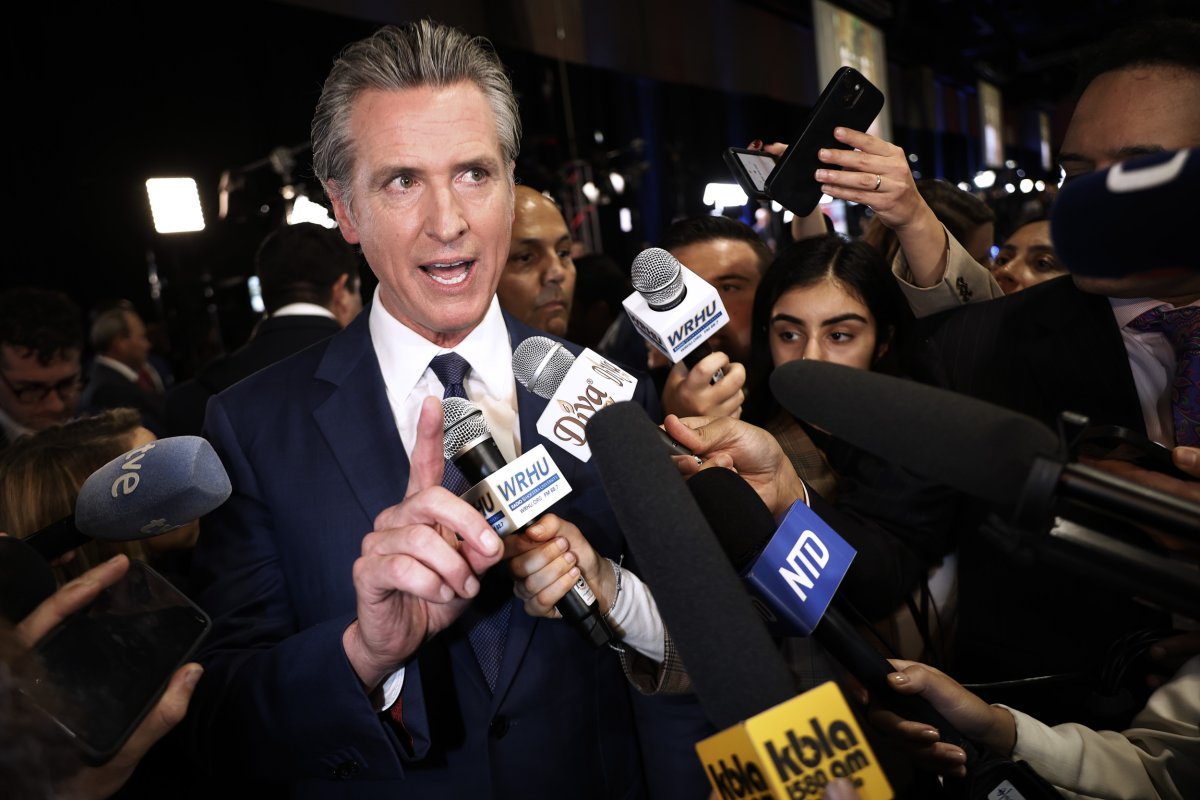
DES MOINES — Three Libertarian Party candidates for Congress in Iowa have asked state courts to overturn a panel’s ruling this week that knocked them off the ballot for the November election. The Libertarians also asked the courts to order a pause on the printing of election ballots until their legal challenge is resolved. From left, Iowa Libertarian Party candidates for Congress Charles Aldrich, Nicholas Gluba and Marco Battaglia speak to reporters after the State Objection Panel upheld objections to their candidacies, effectively knocking them off the ballot for the November election at the Iowa Capitol in Des Moines on Wednesday, Aug.
28, 2024. Libertarian Party congressional candidates Nicholas Gluba in Eastern Iowa’s 1st District and Charles Aldrich in Western Iowa’s 4th District filed their petitions Friday in District Court. They are represented by Clive lawyer Jules Cutler, who also is chair of the Libertarian Party of Iowa.

Marco Battaglia, the Libertarian candidate in Central Iowa’s 3rd District, will be represented by his own lawyer, according to a news release from the party. “The decision to remove our candidates from the ballot is a direct attack on voter choice and the democratic process,” Cutler said in a statement. “We are committed to fighting this decision in court to ensure that Iowans have the opportunity to vote for candidates who truly represent their values.
” The Iowa State Objections Panel issued a 2-1 ruling Wednesday upholding objections to the candidacies of Gluba, Battaglia and Aldrich. The objections, brought by Iowa Republicans who live in the respective congressional districts, claimed the Libertarian Party of Iowa did not fulfill requirements in state law when conducting party organizing business. Conservative Iowa lawyer Alan Ostergren, representing the objectors, argued that invalidated the Libertarian delegates who nominated the three congressional candidates at a special convention in June.
The panel’s ruling effectively removed the three Libertarians from the Nov. 5 ballot. Iowa Secretary of State Paul Pate and Attorney General Brenna Bird voted to uphold the objections; Iowa Auditor Rob Sand voted to reject them.
Pate and Bird are Republicans; Sand is a Democrat. In their petitions, Gluba and Aldrich argue the panel’s ruling conflicted with state law, was based on an erroneous interpretation of the law and was “illogical,” “wholly irrational” and “otherwise unreasonable, arbitrary, capricious, or an abuse of discretion.” Gluba and Aldrich also argue the objectors did not have legal standing to object and should have been required to provide their address or voter registration status.
Iowa Libertarian Party chairwoman Jules Cutler speaks to reporters after a State Objection Panel hearing at the Iowa Capitol in Des Moines on Wednesday, Aug. 28, 2024. Photo by Erin Murphy.
Gluba and Aldrich asked the District Court for expedited consideration. The Iowa Secretary of State’s Office plans to certify the ballots for the November election on Tuesday, after which ballots can be printed. Gluba’s filing includes a request for a temporary emergency injunction, given the Tuesday deadline.
Battaglia’s petition was not available in online court records Friday evening. Iowa’s 1st and 3rd Districts, represented by Republicans U.S.
Rep. Mariannette Miller-Meeks and U.S.
Rep. Zach Nunn, respectively, are projected to be closely contested. In the 1st District, Democrat Christina Bohannan is challenging Miller-Meeks, and in the 3rd District, Democrat Lanon Baccam is challenging Nunn.
Sabato’s Crystal Ball has both elections as leaning Republican, while the Cook Political Report has the 3rd District leaning Republican and the 1st likely Republican. Elections Daily classified the 3rd District as a tossup. Removing a third-party candidate from the ballot in those close elections could impact the outcome.
In 2020, for example, the Libertarian candidate in Iowa’s 3rd District received over 15,000 votes in an election that was won by the Democratic incumbent by fewer than 7,000 votes. Stay up-to-date on the latest in local and national government and political topics with our newsletter..










